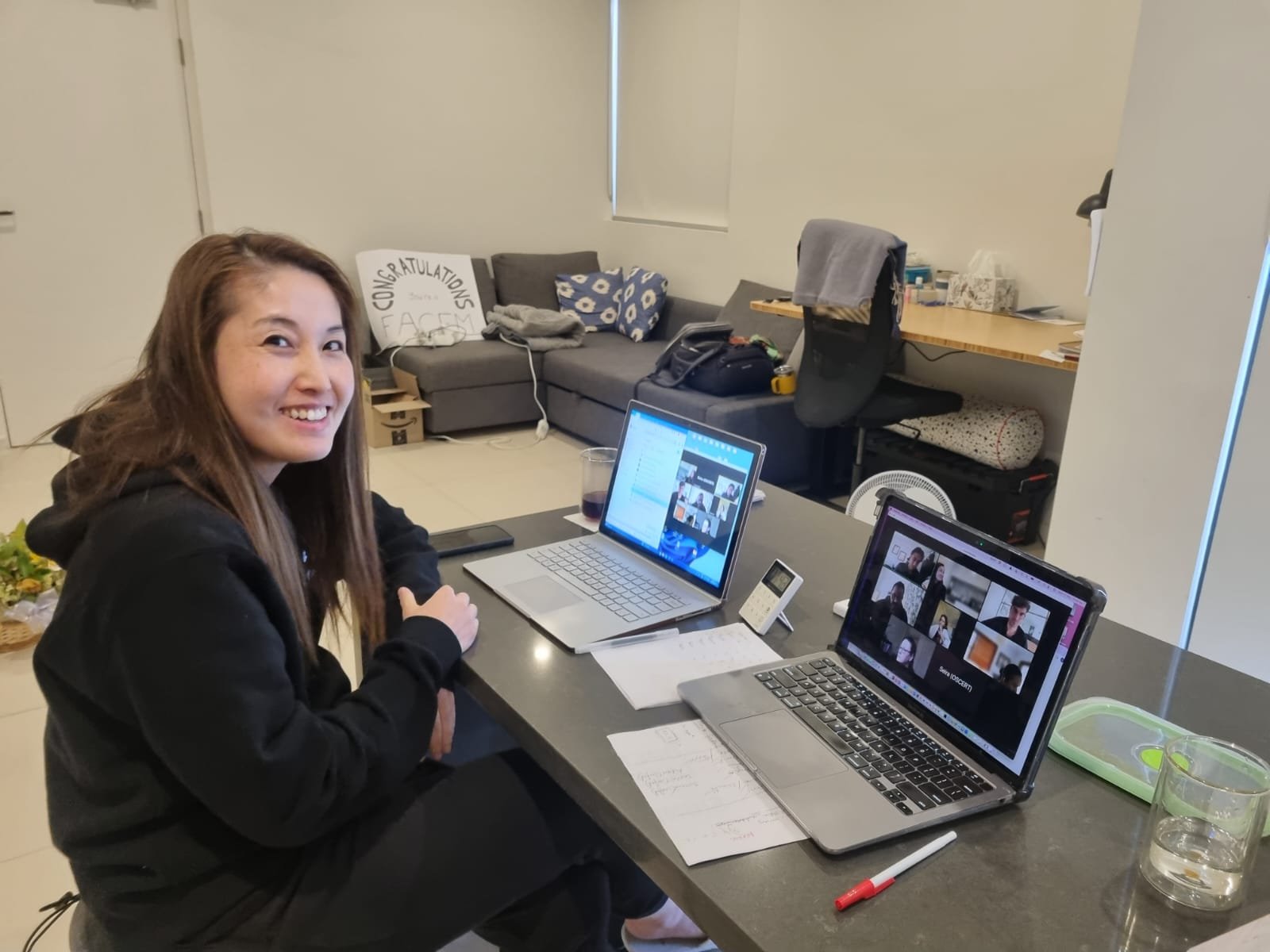You, Me and the ED: Dr Georgina Beech and Dr Seira Ikeuchi
Dr Georgina Beech, an ACEM trainee, and Dr Seira Ikeuchi, a newly accredited FACEM, both share a passion for supporting regional and rural candidates to equitably access educational resources, and have established their own program to help these trainees prepare for the OSCE.
Georgina:
I’m currently finishing off my ED training in Sydney, at Liverpool Hospital, but most of my training has been in rural and regional sites, such as Cairns, Alice Springs, Darwin and even a little time in Tennant Creek.
When I was helping with a trial OSCE at Liverpool Hospital I met one trainee who’d travelled over two hours from his regional training site to make it to the practice exam in the city.
“We’re on the same page about what we’re trying to achieve: helping to make OSCE exam preparation in-reach for everyone. ”
It seemed tough for this trainee to have to travel so far just for one trial exam session. I could relate to his experience – at times, when I was working rurally, I was the only person preparing for an exam, and that felt pretty isolating. It can also be difficult to benchmark yourself and to know if your preparation is adequate when studying alone.
When I’d been preparing for my OSCE in Sydney, however, I’d had the advantage of having infinite resources at my fingertips, with a large cohort preparing for the exam at the same time, plenty of FACEMs offering to help and all the trial exams in Sydney being a short commute away.
That was when the idea to host online trials for candidates who aren’t receiving all that support, and who can’t make it easily to the face-to-face trials, was born.
I met Seira at Liverpool Hospital’s training day. I approached her because, honestly, she was the first person I saw after the idea for a rural training program popped into my head! I sensed she would be the right person to partner up with, even though I didn’t know her too well at the time.
Seira exudes enthusiasm, has loads of energy, and doesn’t seem to be deterred by challenges and setbacks. Her organisational skills are also well beyond my wildest dreams. When I’ve accidentally dropped the ball a little, she’s been there to pick it up — not to mention her IT skills, which are light-years ahead of mine (something which is definitely important when hosting an online exam!)
Most importantly, we’re on the same page about what we’re trying to achieve: helping to make OSCE exam preparation in reach for everyone. In retrospect, pairing up with someone I didn’t know very well was a bit of a gamble, but I really don’t think I could have found a better person to do this with.
Dr Seira Ikeuchi coordinating an online OSCE trial exam.
For the online trial exams, we run six stations simultaneously, requiring twelve FACEMs to assist as examiners. Everyone who has helped out did so out of kindness, giving up their own precious time in the process. We’re incredibly grateful for these people.
Seira:
When Georgina first talked to me about the project, I thought it was a brilliant idea!
Although I didn’t work in rural or regional areas when I completed my training, I understand what it feels like to not have much access to ACEM examiners at a training site.
I can imagine these problems are even more compounded in rural or regional areas, as having fewer candidates in these areas may mean that some trainees have no one to practice with at all. Going to the next-nearest training site in search of practice sessions may also be challenging. Georgina and I are hoping to assist in ensuring that there is more equity in OSCE preparation opportunities through these online trial exams.
Running online exams can be challenging, as it requires everything to be managed completely virtually. We need to make sure that both the IT and internet work seamlessly, which can be challenging to coordinate. Also, making good quality OSCE trial questions is a lot of work, and requires a lot of time dedicated to making sure it’s as good as it can be without us being officially trained to write ACEM exams.
“It has been so rewarding to be part of something that, by assisting rural and regional candidates to obtain their Fellowship, is helping progress emergency medicine.”
Although coordinating our first OSCE trial exam had its challenges, I would like to blow our own horn a bit and say that I think Georgina and I did a pretty good job, and the positive feedback we have received so far has been really encouraging. I’m also sure that, as we run more exams, we will continue to improve our processes.
I have thoroughly loved creating and running these exams with Georgina. I think organising something like this is a great transferable skill to have, and I have learnt so much about working as a team and delivering educational content.
It has been so rewarding to be part of something that, by assisting rural and regional candidates to obtain their Fellowship, is helping to progress emergency medicine.
If you’re interested in learning more about the program, please email us at em.oscert@gmail.com







